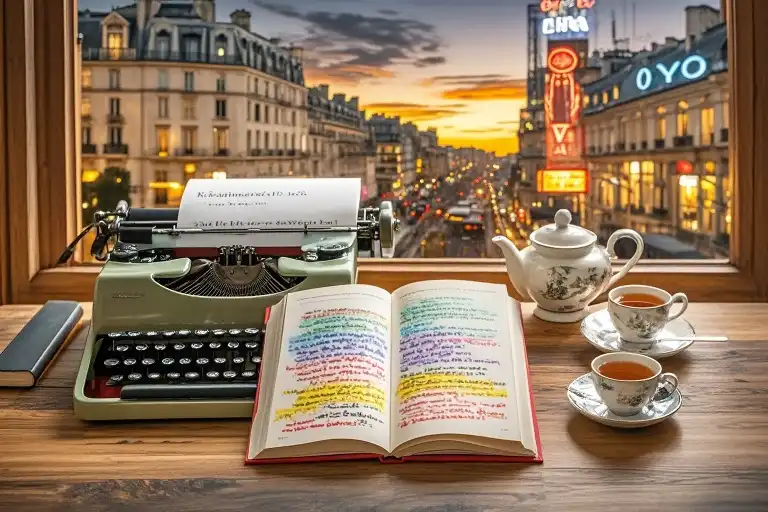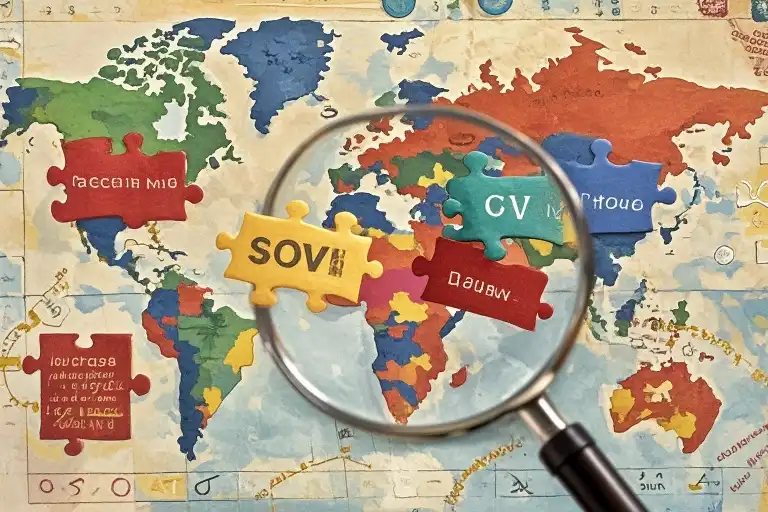The cursor blinks mockingly on your blank document. Somewhere in New York, a novelist stares at coffee-stained revisions of Chapter 12. In Chicago, a poet deletes her seventh attempt at describing snowfall. Meanwhile in Barcelona, a trilingual writer casually borrows the Catalan word “enyorança” – that specific ache for something lost that English can’t name. This isn’t about vocabulary expansion. It’s about rewiring how stories form in your mind.
America’s Linguistic Isolation – Our Creative Blind Spot
Let’s confront an uncomfortable truth: 90% of US-born citizens function solely in English. Compare this to 56% of Europeans speaking multiple languages. Our “English-only” bubble isn’t just limiting – it’s distorting how we perceive reality itself.
Dr. Maria Polinsky’s neurolinguistics lab at University of Maryland discovered something startling. Monolingual brains process “tree” as a concrete noun. Bilinguals? They unconsciously access both “árbol” (Spanish’s living entity) and “木” (Japanese’s architectural material). This mental flexibility translates directly to richer metaphors and more dimensional characters.
The Hidden Grammar of Imagination
Consider this:
- English forces you to pin down time (past/present/future perfect)
- Mandarin makes you quantify objects (one book, two flat things)
- Russian requires verb gender even for inanimate objects
When I stumbled through learning Japanese, their “wa” vs “ga” particles (topic vs subject markers) shattered my English assumptions about sentence focus. Suddenly, paragraph pacing transformed. Scenes could linger on atmospheric “wa” details before hitting readers with “ga” action punches.
Cultural Code-Switching in Action
Novelist Jhumpa Lahiri’s experiment says it all. After publishing Pulitzer-winning English prose, she started writing in Italian: “I needed to become…clumsy, vulnerable.” The result? “Whereabouts” – her most emotionally raw work. That linguistic vulnerability becomes your secret weapon.
Your 3-Step Linguistic Detox
- Steal Like a Polyglot
Listen to French podcasts at 0.75x speed. Not for comprehension, but to absorb their sentence music. How do they build suspense with delayed verbs? Notice the rhythm, then mimic it in your dialogue. - Lost in (Controlled) Translation
Take your draft paragraph. Google Translate it to Korean and back. Those awkward phrasings? They reveal English’s hidden assumptions. A character “making dinner” becomes “manufacturing evening meal” – instant robotic vibes! - Bilingual Brain Dates
My Wednesday mornings: 45 minutes writing in Japanese diary app “Langtern”. No grammar checks, just raw thoughts flowing through different linguistic paths. By noon, my English prose feels strangely…roomier.
The Accent Your Writing Needs
That subtle “foreignness” readers crave? It’s not about sprinkling Italian phrases. It’s the structural freshness bilinguals gain. Like how Kazuo Ishiguro’s Japanese heritage subconsciously shapes his English narration’s pause patterns. Your acquired language becomes the piano’s soft pedal – modifying tones you didn’t know were harsh.
Monolingual No More
Last month, I caught myself doing something peculiar. Describing a character’s nervous habit, I wrote: “Her hands kept folding origami cranes that never needed to exist.” Pure English, yet structurally Japanese. That’s the bilingual advantage – creating new realities that feel familiar yet intriguingly “other.”
The blank page still intimidates. But now I hear Barcelona’s writer friends whispering: “What if your character feels ‘saudade’?” The Portuguese word for nostalgic longing suddenly fits better than any English approximation. Your turn – what undiscovered linguistic lens awaits your writing?



